The project team includes members of the core research team, as well as members of our advisory board.
Core research team
Lin Fu (University of Birmingham)
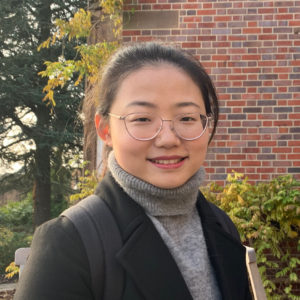 Lin Fu is a Research Fellow on the project. She completed her PhD in Economics in 2020 at the University of Birmingham, where she worked on the determinants of health-compromising behaviours in China, including smoking, heavy drinking, physical inactivity and obesity.
Lin Fu is a Research Fellow on the project. She completed her PhD in Economics in 2020 at the University of Birmingham, where she worked on the determinants of health-compromising behaviours in China, including smoking, heavy drinking, physical inactivity and obesity.
She is passionate about the “Vulnerability, Migration, and Wellbeing” project. It studies the groups of people who are at risk of vulnerability and tries to solve the welfare problems for them through a mixed methods approach. She is delighted to be part of the team and look forward to contributing to the possible policy development which will benefit vulnerable people.
Dr Laurence Lessard-Phillips (University of Birmingham)
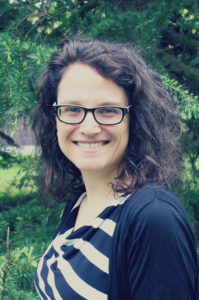 Laurence Lessard-Phillips is the Principal Investigator (PI) of the project. She joined the University of Birmingham/Institute for Research into Superdiversity in 2016, after holding research posts at the University of Manchester and the Netherlands Interdisciplinary Demographic Institute. A quantitative sociologist by training, Laurence’s main research interests include the perceptions, measurement, and dimensionality of migrant adaptation; migrant and ethnic inequalities in education and the labour market; agent-based models of migration, integration, and diversity; the wellbeing of migrants; transnational behaviour across migrant generations; and social inequalities and social mobility.
Laurence Lessard-Phillips is the Principal Investigator (PI) of the project. She joined the University of Birmingham/Institute for Research into Superdiversity in 2016, after holding research posts at the University of Manchester and the Netherlands Interdisciplinary Demographic Institute. A quantitative sociologist by training, Laurence’s main research interests include the perceptions, measurement, and dimensionality of migrant adaptation; migrant and ethnic inequalities in education and the labour market; agent-based models of migration, integration, and diversity; the wellbeing of migrants; transnational behaviour across migrant generations; and social inequalities and social mobility.
In this project, she is particularly interested in exploring the dimensionality of wellbeing for populations at risk of vulnerability and expanding understandings of wellbeing and vulnerability. She is also keen on developing a strong, mixed methods, evidence base for the project with relevant academic and policy relevance.
Dr Antje Lindenmeyer (University of Birmingham)

Antje Lindenmeyer is a medical sociologist and qualitative researcher. She is based in the Institute of Clinical Sciences and has been collaborating with colleagues at IRiS in the areas of migrant health and wellbeing since joining the University of Birmingham in 2013. She has a strong research interest in the ways in which people who lead transnational lives seek, experience, and interact with health care.
In this project, Antje will lead the qualitative work stream including interviews with volunteer clinicians and secondary analysis of the free text notes that are part of the questionnaires they complete with DOTW service users. This will allow us to better understand the questionnaire data (for example, why there might be non-responses). In addition to this, Antje will focus on the way in which the questionnaire is co-constructed in the encounter between volunteer clinician and service user.
Professor Jenny Phillimore (University of Birmingham)
 Jenny Phillimore is Professor of Migration and Superdiversity. She is a world leading scholar in refugee integration, superdiversity and access to social welfare with a particular focus on public health, as well as publishing and development of the community research methodology. Over the past decade she has managed teams of researchers focusing on access to health, education, employment, training, and housing integration with a particular focus on integration and organisational change in the UK and EU.
Jenny Phillimore is Professor of Migration and Superdiversity. She is a world leading scholar in refugee integration, superdiversity and access to social welfare with a particular focus on public health, as well as publishing and development of the community research methodology. Over the past decade she has managed teams of researchers focusing on access to health, education, employment, training, and housing integration with a particular focus on integration and organisational change in the UK and EU.
Jenny is a Fellow of the RSA and of the Academy of the Social Sciences. She has advised local, regional, national and European Government. Jenny led the ESRC/Norface funded UPWEB project which is developing a new concept of welfare bricolage to explore how residents in superdiverse areas address health concerns. Currently she leads the international SEREDA project which aims to understand the incidence and nature of sexual and gender-based violence (SGBV) experienced by women, men and child refugees who have fled conflict in the Levant Region.
Jenny’s interest in the project connects with two decades of qualitative work on migrant health which revealed extensive problems with access. She relishes the opportunity to explore some of these issues using the unique DoTW dataset.
Lucy Jones/Rita Dayoub (Doctors of the World UK)
Ella Mortlock (University of Birmingham)
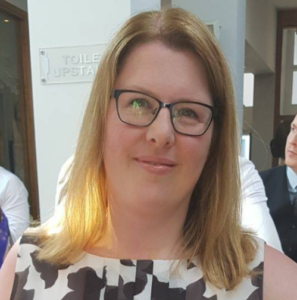 Ella is the Development and Communications Manager for the Institute for Research into Superdiversity (IRiS). Previously Ella has worked as a Project Manager, Alumni Relations Manager and Community and Volunteer Manager for VSO (Voluntary Service Overseas). Ella manages communications and engagement planning for the project.
Ella is the Development and Communications Manager for the Institute for Research into Superdiversity (IRiS). Previously Ella has worked as a Project Manager, Alumni Relations Manager and Community and Volunteer Manager for VSO (Voluntary Service Overseas). Ella manages communications and engagement planning for the project.
Advisory board members
Dr Robert Aldridge (UCL)
Alex Beer (Nuffield Foundation)
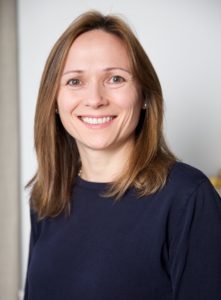 Alex Beer joined the Nuffield Foundation’s Welfare team in 2016, contributing to the development and management of the grants portfolio. She leads on themes relating to work, family and community, as well as cross-cutting themes on inequality and intergenerational issues. She is delighted to be supporting this grant for the unique knowledge and understanding of a vulnerable population that it will bring and the development of evidence to inform policy and practice to support well-being.
Alex Beer joined the Nuffield Foundation’s Welfare team in 2016, contributing to the development and management of the grants portfolio. She leads on themes relating to work, family and community, as well as cross-cutting themes on inequality and intergenerational issues. She is delighted to be supporting this grant for the unique knowledge and understanding of a vulnerable population that it will bring and the development of evidence to inform policy and practice to support well-being.
Prior to joining the Nuffield Foundation Alex was a Senior Economic Adviser at the Department for Work and Pensions with experience of working across UK government including HM Treasury and the Department for Children, Schools and Families. Her analytical and policy experience covers labour market and pensions issues, child poverty and microsimulation modelling, from time in roles that include Head of Strategy and Analysis for the cross-government Child Poverty Unit and Head of DWP’s Model Development Unit.
Hannah Boylan (GLA)
Professor Sin Yi Cheung (Cardiff University)
Dr Lisa Doyle (Refugee Council)
Dr Hiranthi Jayaweera (COMPAS Research Affiliate)
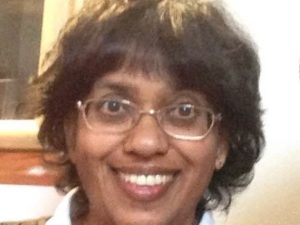 Dr Hiranthi Jayaweera was a Senior Researcher at COMPAS, University of Oxford from 2005 to 2015 and continues to be a Research Affiliate. She has specialised for many years in both quantitative and qualitative research and writing on migrant and ethnic minority health in the UK, including on social determinants of health inequalities among migrants and ethnic minorities. She is the author of the Migration Observatory Briefing on Health of Migrants in the UK: What do we know (2014) which has been widely cited by policy makers and practitioners at local and national levels. Other recent publications include Migrant Integration Policy Index Health Strand: Country report United Kingdom (With Mark Johnson, for IOM, 2017); ‘The health of migrants in the UK: evidence and implications for healthcare’ in Kuehlmeyer, K. et al (eds) Ethical, Legal and Social Aspects of Healthcare for Migrants: Perspectives from the UK and Germany (Routledge, 2019); ‘Access to healthcare for vulnerable migrant women in England: a human security approach’ (Current Sociology, 66 (2), 2018). She has a strong interest in entitlement and access to healthcare and health outcomes of vulnerable migrants which fits in very well with the Vulnerability, Migration and Wellbeing project.
Dr Hiranthi Jayaweera was a Senior Researcher at COMPAS, University of Oxford from 2005 to 2015 and continues to be a Research Affiliate. She has specialised for many years in both quantitative and qualitative research and writing on migrant and ethnic minority health in the UK, including on social determinants of health inequalities among migrants and ethnic minorities. She is the author of the Migration Observatory Briefing on Health of Migrants in the UK: What do we know (2014) which has been widely cited by policy makers and practitioners at local and national levels. Other recent publications include Migrant Integration Policy Index Health Strand: Country report United Kingdom (With Mark Johnson, for IOM, 2017); ‘The health of migrants in the UK: evidence and implications for healthcare’ in Kuehlmeyer, K. et al (eds) Ethical, Legal and Social Aspects of Healthcare for Migrants: Perspectives from the UK and Germany (Routledge, 2019); ‘Access to healthcare for vulnerable migrant women in England: a human security approach’ (Current Sociology, 66 (2), 2018). She has a strong interest in entitlement and access to healthcare and health outcomes of vulnerable migrants which fits in very well with the Vulnerability, Migration and Wellbeing project.
Hiranthi can be contacted on: hiranthijayaweera04@gmail.com
Alyna Smith (PICUM)
Fatima Wurie (PHE)
